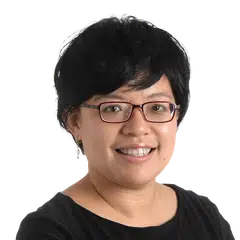Sustainability is crucial in building a resilient portfolio: Temasek
Sign up now: Get ST's newsletters delivered to your inbox

The aim is, by 2030, for Temasek's portfolio to have a 60 per cent to 70 per cent resilient component, held for the long term to provide stable and sustainable returns, and 30 per cent to 40 per cent in a dynamic component where investments are held for a shorter duration.
PHOTO: ST FILE
SINGAPORE – To succeed in building a resilient investment portfolio, sustainability is central to the whole equation, said Temasek deputy chief executive Chia Song Hwee in an interview with The Straits Times.
It is such an important tenet that sustainable living is among the four structural trends Temasek is using to guide its portfolio construction. The others are digitisation, longer lifespans and the future of consumption. A third of the portfolio is based on exposure to these trends, up from 13 per cent in 2016.
These trends are shaping the overall portfolio. The aim is, by 2030, for the portfolio to have a 60 per cent to 70 per cent resilient component, held for the long term to provide stable and sustainable returns, and a 30 per cent to 40 per cent dynamic component, where investments are held for a shorter duration.
To achieve such stable and sustainable returns, addressing the sustainability issue is key.
“Being a long-term investor, if we don’t account for sustainability or climate change, the value of our assets may be lower going forward,” said Mr Chia. “So it makes business sense to pay attention to sustainability.”
Temasek will evaluate, before investing, if the asset has the potential to retain its value in the face of climate and other challenges.
Given these considerations, investing in a company that is a large carbon emitter but offering substantial returns is not a definite “no”, but not a definite “yes” either. If Temasek is able to help the company on its carbon-neutral journey, the investment case would be stronger.
Illustrating the investing decision process, Mr Chia discussed how Temasek evaluated investing in an online marketplace firm for fresh protein produce in an emerging market. The firm wanted to expand its supply chain.
With the additional investment, the firm could invest in better traceability with farmers and thus supply better-quality food that is more sustainably produced. However, the firm was selling both poultry and red meat, with red meat known to have a higher carbon footprint.
While the financials favoured the investment, the sustainability aspect was hotly debated.
If Temasek invested, it could be a catalyst for change and enable the company to expand its distribution reach, which, in turn, could influence a change in consumption behaviour with the products that it recommends, said Mr Chia. Temasek eventually invested in the business.
Being an advocate of sustainability means making social issues a key consideration when making investments.
Temasek takes into consideration the treatment of workers who are employed by potential investee companies.
Across jurisdictions, there are differing regulations and definitions of employee and contractor. Over and above complying with the laws and regulations, Temasek looks at the actual treatment of workers of the businesses before it invests, as this is one aspect that demonstrates whether the company’s values are aligned with those of Temasek.
“If we see that workers in a company are paid below average, or their working hours are too long, and so on, then perhaps we should not invest. The company may face a social problem in future as the workers are not being treated fairly,” said Mr Chia.
For Temasek, this approach underscores its purpose: So Every Generation Prospers.
Mr Chia said: “As a long-term investor, we believe we have the responsibility to do our part to uplift communities, so as to build a more sustainable and inclusive world.”
Potential investments are evaluated based on an overall environmental, social and governance framework. A board risk and sustainability committee provides oversight.

Temasek deputy chief executive Chia Song Hwee says Temasek will evaluate if the asset has the potential to retain its value in the face of climate and other challenges.
ST PHOTO: GIN TAY
Among the recent investments are US’ Form Energy, an energy storage company that is developing a battery for grids, India’s largest electric two-wheeler manufacturer Ola Electric, and agritech start-up Rize, which focuses on decarbonising rice cultivation. Another example is France-based recycling start-up Fairmat.
At home, Temasek has partnered Singapore Airlines and the Civil Aviation Authority of Singapore on a sustainable aviation fuel pilot project at Changi Airport that aims to reduce the carbon footprint of airlines.
Temasek also works with partners to drive change on the sustainability front.
There is a partnership with HSBC called Pentagreen Capital, a debt-financing platform to accelerate development of marginally bankable sustainable infrastructure in Asia.
Another partnership is with asset manager BlackRock – a joint venture called Decarbonization Partners, focusing on decarbonisation solutions.
With these sustainability efforts, Temasek came tops in 2023, scoring a maximum 100 per cent in the 2023 GSR Scorecard by data platform Global SWF, which assesses the governance, sustainability and resilience progress of state-owned investors.
Mr Chia said: “As we commemorate our 50th anniversary, we stay committed to delivering sustainable returns over the long term, adapting to a more complex and bifurcated world.”
Correction note: An earlier version of the story said that Pentagreen Capital accelerates the development of bankable sustainable infrastructure in Asia. It should be marginally bankable sustainable infrastructure. This has been corrected.



